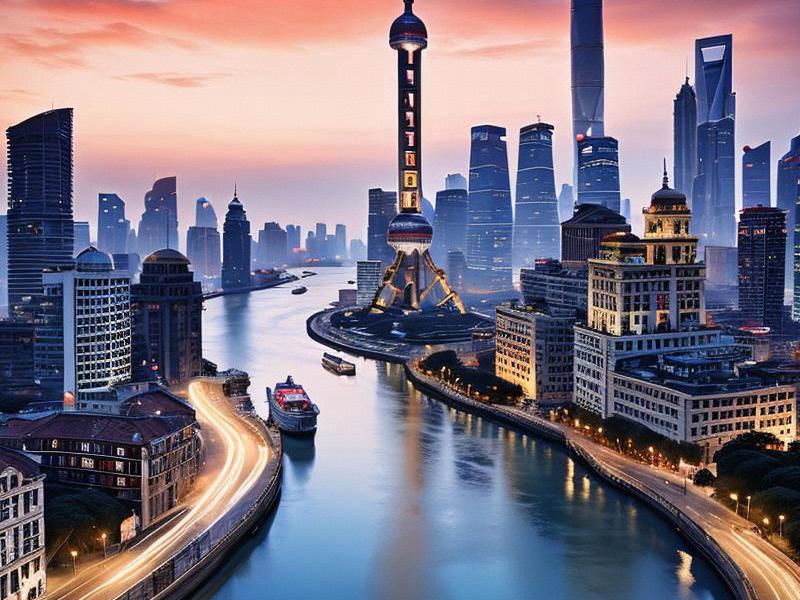
Shanghai, often referred to as the "Pearl of the Orient," is a city that seamlessly blends tradition with modernity. Located on the eastern coast of China, it is the largest city in the country and one of the most influential global financial hubs. Shanghai's story is one of transformation, from a modest fishing village to a bustling metropolis that captivates the world.
Historical Significance
The history of Shanghai dates back thousands of years, but it was during the Ming and Qing dynasties that the city began to emerge as a significant port. By the 19th century, Shanghai had become a major center for international trade, thanks to the Treaty of Nanking, which opened the city to foreign trade in 1842. This period saw the establishment of the International Settlement and the French Concession, areas where Western powers had extraterritorial rights.
The blend of Chinese and Western cultures during this era left a lasting imprint on Shanghai's architecture, cuisine, and lifestyle. The Bund, a waterfront area in the heart of the city, is a testament to this historical amalgamation, with its array of colonial-era buildings overlooking the Huangpu River.
Architectural Landmarks
Shanghai's architectural landscape is a vivid tapestry of the city's storied past and dynamic present. The Bund, with its Art Deco skyscrapers and historic banks, offers a glimpse into the city's colonial past. Across the river lies Pudong, a symbol of Shanghai's modernity. The iconic Oriental Pearl Tower, the Jin Mao Tower, and the Shanghai Tower are among the tallest buildings in the world, showcasing the city's skyline that competes with global giants like New York and Hong Kong.
上海娱乐 The Yu Garden, a classical Chinese garden built in the Ming Dynasty, provides a serene escape from the urban hustle. It is a masterpiece of Chinese landscaping, featuring pavilions, ponds, and rockeries. The nearby Yuyuan Bazaar is a bustling marketplace that offers traditional Chinese goods, souvenirs, and a taste of local snacks.
Culinary Traditions
Shanghai's culinary scene is as diverse and vibrant as its culture. The city is renowned for its "Shanghainese cuisine," which is characterized by its sweet and savory flavors, delicate textures, and meticulous preparation. Dishes like Xiaolongbao (soup dumplings), Shengjianbao (pan-fried dumplings), and Hongshao Rou (red-braised pork) are must-tries for food enthusiasts.
Night markets and food streets like Nanxiang Mantou Dian (Nanxiang Steamed Bun Shop) and the Yuyuan Bazaar offer an authentic taste of Shanghai's street food. These establishments are a melting pot of flavors, where visitors can savor everything from stinky tofu to sweet glutinous rice balls.
Economic Powerhouse
Shanghai's economic prowess is a cornerstone of its global significance. As one of China's four municipalities directly under the central government, it enjoys a high degree of autonomy and plays a pivotal role in the country's economic development. The city is home to the Shanghai Stock Exchange, one of the largest in the world, and the Pudong New Area, a hub for finance, trade, and technology.
上海喝茶服务vx Shanghai's free trade zone is a pilot project that has attracted numerous multinational corporations. The city's strategic location, robust infrastructure, and business-friendly environment make it a preferred destination for foreign investment. Industries such as finance, manufacturing, and technology thrive here, contributing to the city's status as a global economic powerhouse.
Urban Development and Sustainability
Shanghai's rapid urbanization is a remarkable feat, with the city constantly evolving to meet the demands of its residents and the global community. The Maglev train, the world's fastest commercial train, connects Pudong International Airport to the city center in just minutes, showcasing the city's commitment to innovation and efficiency.
Sustainability is a growing focus in Shanghai's urban planning. Initiatives like the construction of green buildings, the promotion of public transportation, and the development of eco-friendly neighborhoods reflect the city's dedication to environmental stewardship. The Shanghai World Expo in 2010, which showcased sustainable urban living, left a lasting legacy of environmental awareness.
Cultural and Educational Hub
上海品茶网 Shanghai is not only an economic powerhouse but also a cultural and educational hub. The city boasts numerous museums, theaters, and art galleries, such as the Shanghai Museum, which houses an extensive collection of Chinese art, and the Shanghai Grand Theatre, a venue for opera, ballet, and classical music.
Educational institutions like Fudan University and Tongji University attract students from around the world. Shanghai's vibrant cultural scene includes film festivals, art exhibitions, and a thriving arts community that contribute to the city's cosmopolitan character.
Global City
Shanghai's status as a global city is evident in its international connections and influence. The city hosts numerous international conferences, forums, and events, making it a hub for diplomacy and business. Its skyline, with its iconic skyscrapers and modern infrastructure, is a symbol of China's rise on the global stage.
Shanghai's blend of tradition and modernity, its economic dynamism, and its cultural vibrancy make it a city of endless possibilities. Whether you are exploring its historical landmarks, savoring its culinary delights, or engaging in its dynamic business environment, Shanghai offers an experience that is truly unique.
In conclusion, Shanghai is a city that has mastered the art of transformation, balancing its rich cultural heritage with rapid modernization. It stands as a beacon of China's progress and a testament to the city's resilience and adaptability. As you walk through its bustling streets, marvel at its architectural wonders, and savor its culinary treasures, you will find that Shanghai is a city that truly has it all.
